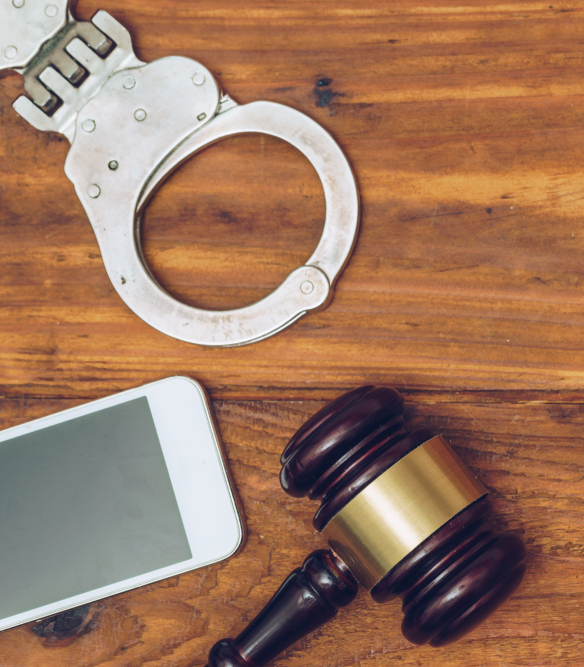State supreme court affirms 12-year sentence for inmate’s cellphone possession

Image from Shutterstock.com.
The Mississippi Supreme Court has upheld the 12-year sentence of a man convicted for having a cellphone in jail.
In its decision on Thursday, the court said that while Willie Nash argued his sentence was “grossly disproportionate” to the crime and violated the Eighth Amendment, it fell within the statutory range of three to 15 years. WDAM 7 has the report.
Nash was in the Newton County Jail on a misdemeanor charge when he asked a jailer for “some juice” and handed over a cellphone, the court’s opinion states. Nash later denied that the cellphone belonged to him, but the deputy sheriff who unlocked the phone using a code Nash provided found photos of Nash and outgoing text messages saying that he was in jail.
A jury convicted Nash of possessing a cellphone in a correctional facility, and in August 2018, a judge sentenced him to 12 years in prison, the opinion states. The judge in that case told Nash that “while his crime may have seemed insignificant to him, there was a reason possessing a cellphone in a correctional facility ‘is such a serious charge.’ ”
The judge told Nash, who was also fined $5,000, to “consider himself fortunate” since he had also been convicted of burglary in the past.
Mississippi Code Section 47-5-193 prohibits any offender in a correctional facility from possessing “any weapon, deadly weapon, unauthorized electronic device, contraband item, or cellphone or any of its components or accessories to include, but not limited to, Subscriber Information Module (SIM) cards or chargers.”
While Nash argued that possessing a cellphone was not as serious as possessing a weapon, the court held that there was no language in the statute that distinguished the severity of punishment based on the item that was possessed.
“While obviously harsh,” the court also said Nash’s sentence was within statutory limits and comparable to other sentences imposed for the same crime.
Presiding Justice Leslie D. King said in a separate written opinion that while the court reached the proper result under case law, the case “seems to demonstrate a failure of our criminal justice system on multiple levels.”
King contended that Nash shouldn’t have been able to hide the cellphone if Newton County Jail’s booking procedure, which includes strip searches, was followed. Arrestees are also routinely asked to turn over their cellphones.
The justice also pointed out that Nash’s last conviction was in 2001, and he has since stayed out of trouble.
“He has a wife and three children who depend on him,” King said. “Combining this fact with the seemingly innocuous, victimless nature of his crime, it seems it would have been prudent for the prosecutor to exercise prosecutorial discretion and decline to prosecute or to seek a plea deal.
“In that same vein, it would have been prudent for the judge to use his judicial discretion in sentencing to sentence Nash to a lesser sentence than that of 12 years.”



